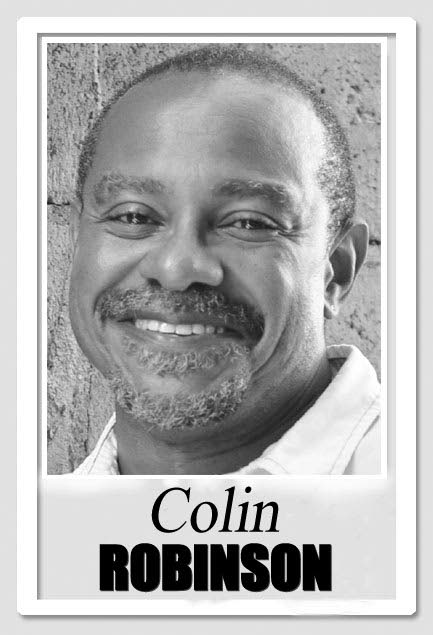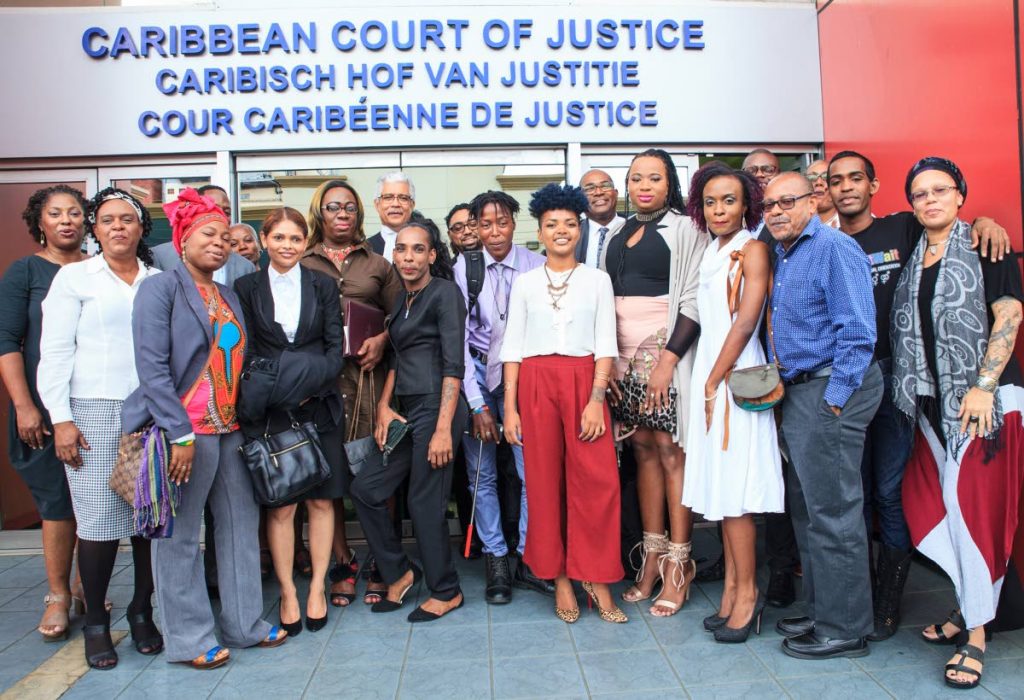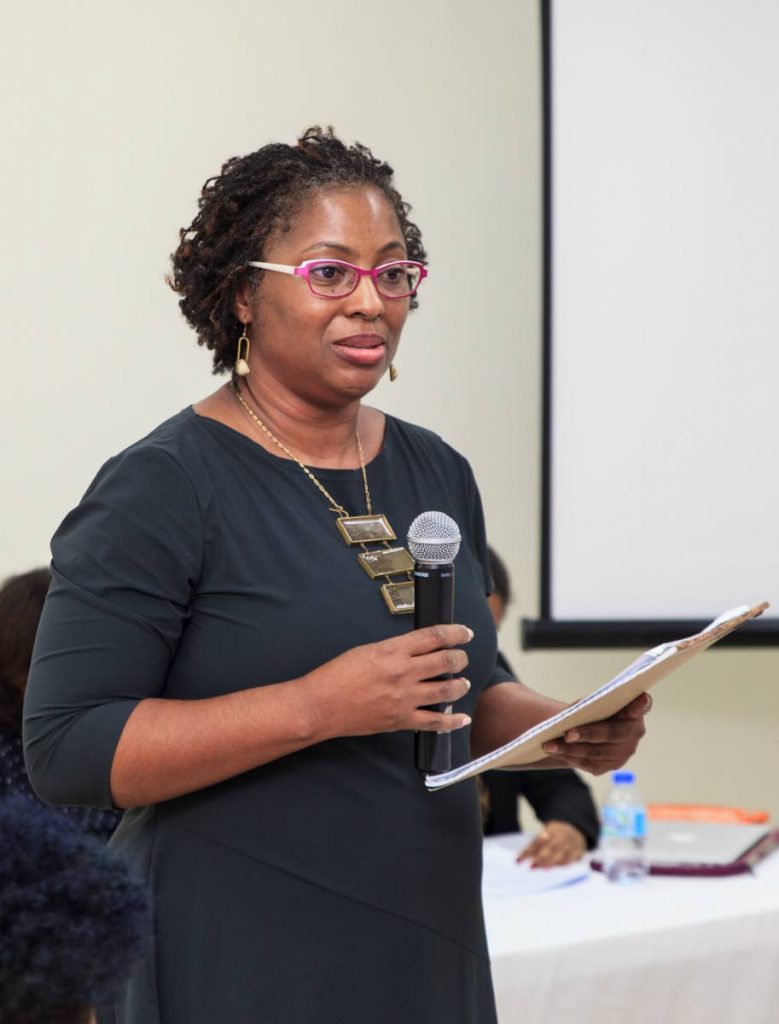The law teacher and the litigant

He plops his knapsack down on the conveyor belt of the metal detector, and the polyester-pantsed woman guarding the entrance to the Caribbean Court of Justice lectures the young man: he must not drop it down so, but rest it down gently.
No, it is not the laptop inside that is her concern; it is her metal detector.
It is such a familiar portrait; a small illustration of the thing we are there to litigate.
We are there, over 20 of us, for the final appellate hearing of a case that has largely gone unheralded as the first constitutional challenge to unfair Caribbean laws against LGBTI people. From Belize, Jamaica, Maryland and, of course, Guyana. University lecturers, a social worker, activists, unemployed people, NGO workers. The law student with the heavy bag.

And the Guyanese litigants. Gulliver. Angel. Peaches. Isabella. Who are not fair-skinned. Well-travelled. Not gay men. Not media-exposed. For whom violence is an everyday occurrence they do not need to embroider. And who, yes, have been charged. Arrested. Fined. Humiliated.
It is clear this is a different kind of case. Perhaps this is how it has escaped the world’s attention.
The narrative the case is telling about itself is not principally one about victimhood. Nor heroism. Nor making history. Nor the exceptionalism I point out. Though there is bravery in it. And history—even in the courtroom already.
Justices on a Caribbean appellate court are saying “transgender,” one after another, pointing out that well-off people are not equal to poor people when it comes to the law, that people plead guilty and pay fines just to avoid going back to court.

The story the case is trying to tell about history is that of how we made the Caribbean—out of laws that control people in small ways, that seem archaic and petty like how to put down a knapsack, but do far more harm.
The story the case is trying to tell us is naming “administrative violence,” with a playful self-reflection about why we are using such an unfamiliar term in an invitation to a community dialogue. “Perhaps we want you to be curious, because people are more open to meaningful conversation when we are not all-knowing. Perhaps we are more productive when presented with another way of thinking about a problem we are already very knowledgeable about.”
We know a lot about Caribbean violence, we understand intimately systems of unequal power and life chances, the small things like the guard and the student. But maybe it is useful to re-think violence, those involved in the case are saying, as something different from an accumulation of individual acts, and ponder what links violence that is administratively enforced through judicial and police apparatuses and the violence of administrative systems that “create narrow categories of gender and force people into them in order to get their basic needs met,” as trans activist/lawyer Dean Spade raises.
Spade also asks that we question whether efforts, like the one that drew us to the CCJ, “reframe” the law and the system so they include us, while leaving intact ways in which both continue to enact the violence built into them in other ways. On other people?
Some shared understanding of all of this has drawn people who are faces of the Anglican Church, the Coalition Against Domestic Violence, the Lloyd Best Institute and the Movement for Social Justice together with the litigants at a City Hall forum following the hearing. And in the middle of it, Roberta Clarke talks about how important to our work kindness and generosity are.
It draws me to pay tribute to the generosity of two women who have teamed to give this case the ownership and the particular meaning it has. Who have filled the litigation with kindnesses. Broadened it beyond themselves.
One is first-named litigant Gulliver McEwan. Director of Guyana Trans United, an NGO formed out of the case, to expand the voice and lives of trans Guyanese, who sits with me and talks about housing, employment, food, safety, community, joy, a list so different from the surgery and asylum concerns of local folks. A woman the “international gay lobby” will not make the Caribbean’s posterchild.
The other is a Jamaican woman the young man with the heavy bag insists on calling Miss. A university law teacher, Tracy Robinson, resists the luminary status she has earned. She is helping us all think differently about the law and litigation. About how cases and communities and ideas collaborate in pursuit of justice.
Their generosity reminds me where we find beloved community, where we are important to each other. And, therefore, generous. I am grateful to be among the people their generosity has brought together, standing in line behind the student, waiting to put our bags on the machine.

Comments
"The law teacher and the litigant"